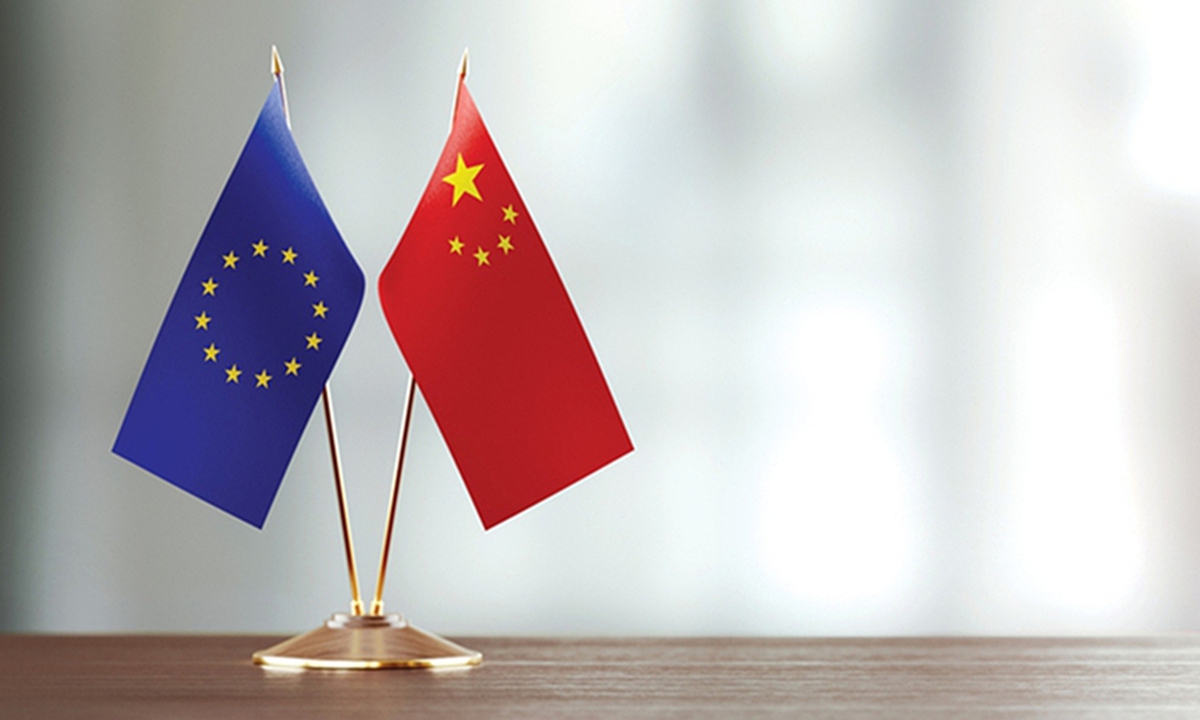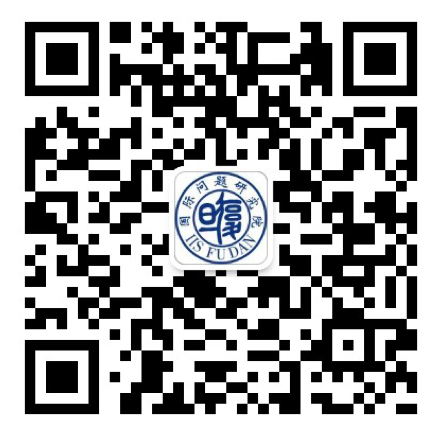
China-EU Photo: VCG
China and the EU share extensive common interests and vast opportunities for cooperation in multiple areas since their combined economic output exceeds one-third of the world's total, and both sides advocate economic globalization and free trade while firmly upholding and supporting the WTO, a Chinese customs official said on Monday, as this year marks the 50th anniversary of diplomatic ties between China and the EU.
Amid growing instability and uncertainty in the world economy, China and the EU jointly maintain free and open trade and investment and safeguard stable and smooth global industrial and supply chains through close communication and cooperation, which will inject more stability and certainty into both sides and the world economy, Wang Lingjun, deputy head of the General Administration of Customs (GAC), said at a press conference in Beijing on Monday.
China and the EU are important trade partners for each other, with bilateral trade surging to $780 billion today from $2.4 billion during the early days of our diplomatic relations. In the first quarter, China-EU imports and exports hit 1.3 trillion yuan ($178 billion), up 1.4 percent year-on-year, which means more than 10 million yuan in trade exchanges every minute, Wang said.
This stable growth in bilateral trade demonstrates resilient trade ties between China and Europe, despite increasing challenges, Jian Junbo, Director of Center for China-Europe Relations at Fudan University's Institute of International Studies, told the Global Times on Monday.
The Chinese and EU economies are highly complementary and their interests are closely intertwined, which boosts the continuous upward development of bilateral trade, Wang said.
China and the EU are committed to a fair, free and WTO-centered multilateral trading system, and the sound and steady development of global trade and economic relations, which is in the interest of both sides and the rest of the world, Chinese Foreign Ministry spokesperson Lin Jian said at a regular press conference on Monday, responding to a question about communication and coordination between China and the EU on additional US tariffs.
China stands ready to work with the international community, including the EU, to step up communication and coordination, share development opportunities, expand opening-up and cooperation, and achieve mutual benefits. We will not only safeguard respective interests, but also defend international trade rules, fairness and justice, Lin said.
Recently, high-level exchanges between China and Europe have been frequent. Spanish Prime Minister Pedro Sanchez and other European officials intensively visited China, including Italy's Senate President Ignazio La Russa, Portugal's Minister of State and Foreign Affairs Paulo Rangel, French Foreign Minister Jean-Noel Barrot and European Commissioner for Trade and Economic Security Maros Sefcovic.
During a video conference between China's Commerce Minister Wang Wentao and Sefcovic on April 8, the two sides vowed to continue to strengthen communication under the WTO framework, jointly promote WTO reform and uphold the multilateral trading system with the WTO at its core, according to a statement on the website of the Ministry of Commerce.
According to the statement, the two sides agreed to start consultation on issues concerning market access at an early date, and immediately start negotiations on electric vehicle (EV) pricing commitments as well as issues related to bilateral investment cooperation in the auto sector.
Chinese and EU technical teams have commenced engagement on negotiations on EV pricing commitments, Yuyuantantian, a social media account affiliated with China Media Group, reported on Monday.
Jian Junbo said that this move is an important step toward stabilizing China-Europe trade relations and addressing trade disputes, particularly in light of US protectionism.
Both sides should make joint efforts to resolve the EV dispute, eliminate trade barriers, and focus on risk management. Close communications and exchanges will smoothen and facilitate trade, ultimately promoting greater market openness on both sides, he said.
According to data released by the GAC, 72 percent of China's imported cases and bags, 51.7 percent of its imported passenger vehicles and 42.2 percent of its imported cosmetics were from the EU in the first quarter, while China's exports of electronic appliances to the EU grew by 7.7 percent year-on-year, clothing and accessories exports were up by 3 percent, and those of daily necessities were up by 16.1 percent.
From January to March, China's imports of high-end equipment from the EU climbed by 30.4 percent year-on-year to reach 64 billion yuan, while China's exports of industrial robots to the EU soared 81.9 percent and those of high-end machine tools went up 11.7 percent. In addition, China's imports of beer from the EU grew by 25.7 percent year-on-year and those of imported pork were up by 17.5 percent, the data showed.
European Commission President Ursula von der Leyen said last Thursday that the EU would explore closer cooperation with the Comprehensive and Progressive Agreement for the Trans-Pacific Partnership, Bloomberg reported.
The remark indicates that the EU is seeking to reduce its economic reliance on the US, particularly amid tariff tensions, while enhancing strategic autonomy for securing its future economic development, Zhang Jian, vice president of the China Institutes of Contemporary International Relations, told the Global Times on Monday.
China's ultra-large market offers strong predictability and abundant opportunities. As along as the EU abandons its ideological prejudice, it will find more investment and trade opportunities by cooperating with China so as to give a strong boost to the EU economy, Zhang said.






